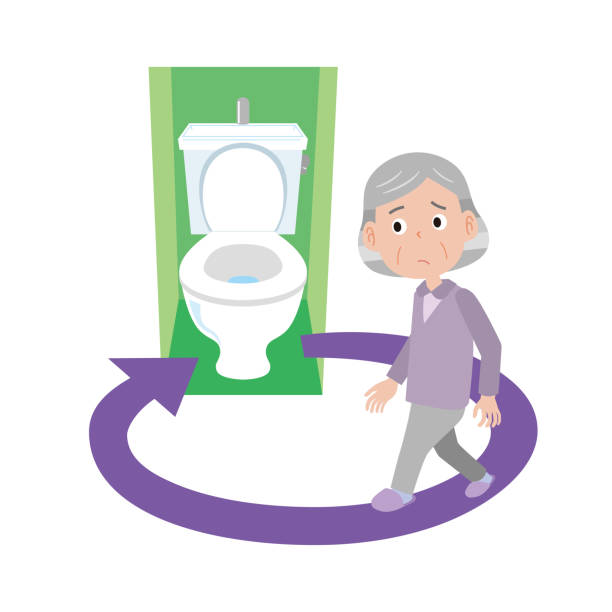Diabetes is a serious and life-threatening condition that affects millions of people around the world. It’s essential to be aware of the signs and symptoms of type 2 diabetes, as early diagnosis and treatment can help delay or even prevent its development. In this article, we’ll look at 10 warning signs for diagnosing type 2 diabetes so you can take early action if necessary.
Type 2 diabetes is one of the most common chronic medical conditions in adults today. Left undiagnosed or untreated, it can lead to long-term health complications including damage to the eyes, kidneys, heart, nerves, and blood vessels. Knowing the warning signs of type 2 diabetes could make all the difference in managing your health proactively.
From increased thirst and frequent urination to fatigue and blurred vision, we’ll discuss 10 important warning signs you need to be aware of in order to diagnose type 2 diabetes early on. So let’s get started!
Common Indicators Of Diabetes
While Type 2 Diabetes is a serious health condition, it is important to note that there are warning signs that can help you detect it early. Recognizing these indicators can allow you to seek medical advice and treatment before the condition develops into something more serious. Here, we will discuss the most common warning signs of Type 2 Diabetes.
One of the most common symptoms of diabetes is an increase in thirst and frequency of urination. People with diabetes may find themselves thirsty even after drinking plenty of fluids, and they may need to go to the bathroom more often than usual. This happens because their body cannot use the glucose correctly, so the kidneys must work harder than normal in order to filter out extra glucose from the body.
Other potential symptoms include extreme fatigue, unexplained weight loss, blurry vision, and slow healing sores or cuts. In addition to these physical symptoms, people with diabetes may also experience high levels of hunger due to their body’s inability to properly process glucose for energy. All these symptoms should be taken as warning signs for diagnosing Type 2 Diabetes and seeking medical attention as soon as possible.
If left untreated, Type 2 Diabetes can cause long-term complications such as heart disease, kidney damage, nerve damage, eye damage and stroke among many other issues. Therefore, recognizing common indicators early on is key for managing this condition effectively and avoiding further health risks down the line.
Unexplained Weight Loss
Unexplained weight loss is a common warning sign for diagnosing type 2 diabetes. This symptom occurs when the body does not properly metabolize glucose, causing it to be excreted through urine instead of being stored in the body. As a result, the body’s cells do not receive enough energy and begin breaking down fat and muscle for fuel. This can lead to an unintentional decrease in body weight even if the person’s diet remains unchanged.
In addition, type 2 diabetes can cause increased hunger or thirst due to glucose being excreted out of the body without being used by its cells. A person experiencing this combination of symptoms may attempt to compensate by eating more food than usual while still losing weight. Therefore, any unexpected decrease in weight should be discussed with a doctor as soon as possible so they can rule out or diagnose type 2 diabetes.
It is important to note that unexplained weight loss can also be caused by other medical conditions such as hyperthyroidism or celiac disease, so it is essential to seek medical advice right away if you are concerned about your health or have noticed a sudden decrease in your body weight. If diagnosed with diabetes, following a healthy lifestyle and following your doctor’s instructions will help you manage your condition better and prevent any further complications from occurring.
Increased Thirst And Hunger
Continuing from unexplained weight loss, increased thirst and hunger are other warning signs for diagnosing type 2 diabetes. People with diabetes may experience a heightened need to drink fluids and an intense feeling of hunger that cannot be satisfied no matter how much they eat. This is because their bodies are not able to turn food into energy most efficiently due to the lack of insulin.
The body needs insulin to absorb glucose from the bloodstream. When this does not happen, the body signals that it needs more energy by making the person feel thirsty and hungry. As a result, people with type 2 diabetes often reach for sugary drinks or snacks in order to quench their thirst and suppress their hunger. However, this can lead to further blood sugar spikes which can worsen symptoms in the long run.
If you feel unusually thirsty and hungry, it could be an indication that your body is unable to use glucose properly and you should see a doctor for further tests to rule out type 2 diabetes as a possible cause. Long-term management of both conditions requires careful monitoring of diet, exercise, medication and lifestyle changes.
Frequent Urination
Frequent urination can be a sign of type 2 diabetes. When the body has too much glucose in the blood, it will try to remove it through urine. This causes an increased need to urinate more frequently than usual. The kidneys may also become overwhelmed by the amount of glucose, leading to an increased production of urine and frequent visits to the bathroom.

In addition, when the body is trying to process large amounts of glucose, it may stop reabsorbing water as efficiently as before. This can lead to dehydration and a feeling of thirst even after drinking water. As a result, people with type 2 diabetes often feel they need to drink more fluids than they usually would in order to stay hydrated.
Having uncontrolled diabetes could also cause frequent urination at night and sleep disturbances due to needing to empty one’s bladder multiple times throughout the night. This is known as nocturia and is often caused by high levels of glucose in the blood that cannot be processed during sleep. High levels of sugar can also increase a person’s risk for urinary tract infections (UTIs) which can cause painful burning sensations on urination or cloudy urine with a strong odor.
If you experience any persistent changes in your urinary habits such as frequency or urgency, it’s important to contact your doctor for further evaluation and treatment if needed.
Blurred Vision
Blurred vision is one of the warning signs for diagnosing type 2 diabetes. It could be a symptom of diabetic retinopathy, which is when high blood sugar levels damage the tiny blood vessels in the retina. As the retina becomes damaged, it can cause blurry or distorted vision. This condition usually affects both eyes and can lead to blindness if not treated properly.
Diabetics may also experience other vision problems such as double vision, blind spots, and difficulty seeing at night or in low light conditions. They may also have trouble focusing on objects that are near or far away. In some cases, diabetics may even experience complete loss of vision in one eye.
It is important for anyone experiencing any of these symptoms to visit an ophthalmologist right away to get tested for diabetes and receive proper treatment. If left untreated, this condition can worsen quickly, leading to more serious complications such as glaucoma or cataracts. Early diagnosis and treatment are key in managing type 2 diabetes and its associated complications.
Related Articles:


















